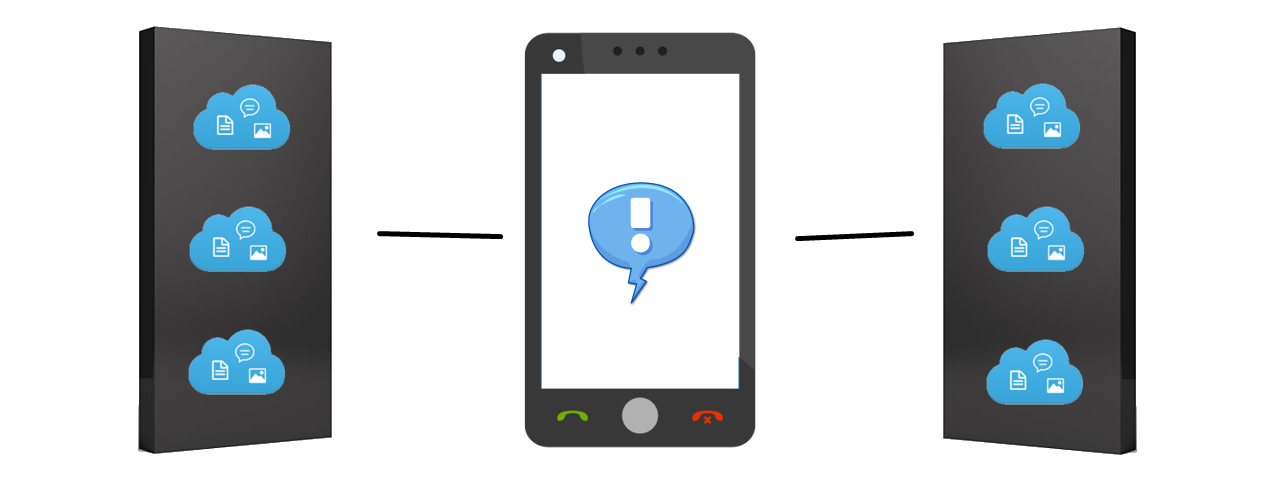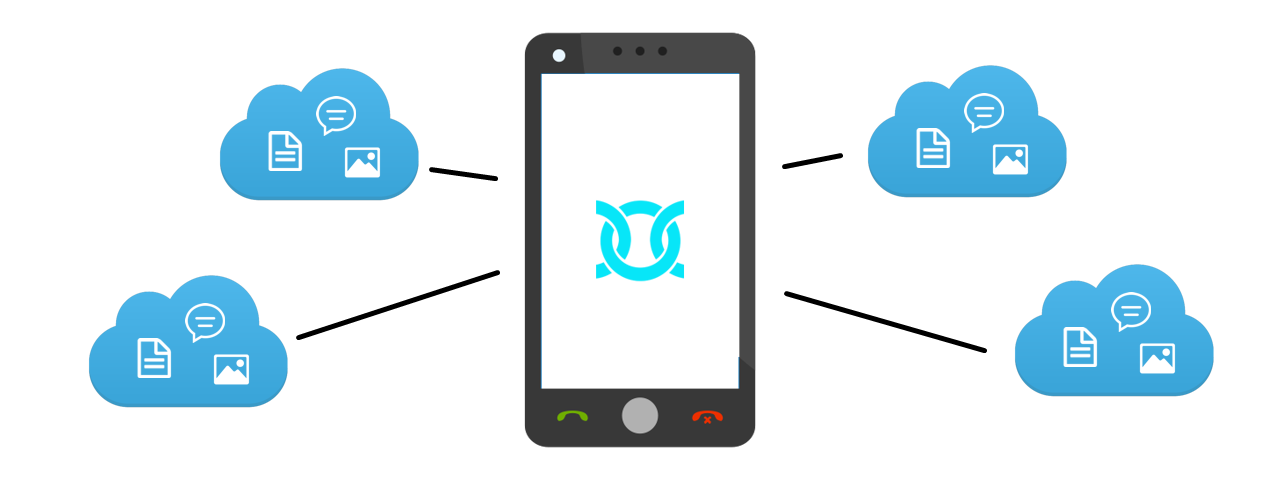The Feedlinks project in part is about restoring the web to the way it was intended to be; decentralized resources, with open protocols so that anyone may join and contribute. But what does that mean? Let's start by going over where things are today.
There are many popular and powerful web services available, both free and paid; for the most part, these services are accessible and usable only with the software and tools provided by the company that offers that service. Think Facebook, X, Instagram, iMessage; you can only access these services through the app or website of the company that makes the service. In an ideal world this arrangement is fine, but what has started to happen is questionable privacy, bulky bloated apps, proliferation of abuse and misinformation, and business models that trap users, to name a few things. Maybe you're not too concerned about some of these things, but what happens if you decide you are? There no alternative because these services have monopolies over their respective niches. This is done for economic reasons, as it's easier to monetize something you have complete control over; it prevents or eliminates competition, and ensures the service remains the 'go-to' for its particular purpose.

We've got monolithic services now, but it never used to be this way. When the Internet was created, nearly all services were designed instead as decentralized services. These services had protocols that were published for all to see, allowing people and companies to share information. Anyone could create an app to read information from any of the service providers. The obvious benefit of this is no singular point of control. If an individual or corporation misbehaved, users would simply find alternatives; no need for government oversight and regulation, just standard market economy. Other benefits include tailored apps specific to each user's preference, and rapid innovation. Innovation comes from experimentation and shared information; an open standard encourages both, and the service evolves quickly.
So which is better? There are of course many different ways to look at things, but I would think the most valuable comparison would be that of success. There are many many successful monolithic services, and due to economics, fewer and fewer open services. But having said that, arguably the most successful web service ever is actually one of the OG services back from when the web was young. To this day it continues to be open, free if you want, or paid if you want; you have the choice depending on what features you want, not what someone else has decided for you. Despite it being one of the oldest web services, it is alive and more active than ever. That service of course, is Email.

Long have 'experts' heralded the end of email. Long have new services come along to attempt to replace it. Long have all of these statements proven to be wrong, and Email continues to reign supreme. Email is used for business, for personal reasons, for planning, for chatting, for sharing; the list goes on. It's versatile, and easy for anyone to use. If you know how to code, you can create your own email client or server with absolutely zero restrictions. It's fast, secure, and very reliable.
Despite Email's ubiquity and obvious strengths, it does however have a number of drawbacks; it's a bit slow, inboxes get cluttered easily, it's commonly used for malicious purposes, and it lacks some of the great collaboration and sharing features that more modern systems possess. So why is it still so dominant? Why are these new services not able to take over? The true strength of Email is in that it's not singularly controlled by anyone. There's no single corporation calling the shots, that decides how much you have to pay, or determines which features or algorithms are developed. Users of monolithic services are at the mercy of the corporation that controls it, as there are no alternative ways to use the service outside what the corporation offers. If the service becomes dominant and there are issues (ie. privacy abuses, monopolies, subversion of democracy, hate proliferation), then the government has to step in to regulate rather than let the free market weed out the abusive suppliers. One could make the case that monolithic services are in fact monopolies, and should be illegal like they are in other corporate structures; I don't see that happening and perhaps it doesn't need to: enter the Feedlinks Project.

Feedlinks' purpose is to follow in Email's footsteps, and breath life back into decentralized services. Feedlinks at its core is a protocol that is capable of powering many of the features of popular web services, but in a manner that free and open like SMTP (Simple Mail Transfer Protocol) which powers Email. Feedlinks provides for free the full specification of the protocol, as well as the code that powers it's own Feedlinks server and App. With nearly no barriers to entry, Feedlinks' hope is to enable a revolution that puts control of our favourite services, back into the hands of the users. Should this happen, any corporate abuse or negligence may easily be bypassed by switching to a compatible competitor that matches your opinions. If one provider does not provide an experience that meets your needs or expectations, simply switch or create your own.
Feedlinks is also designed to reduce online abuse. By giving more control to users, it's easier to control and filter who may reply to posts, who may see posts in the first place, or who even sees the replys at all. People should not have to stay away from social media due to the types of posts and/or replys they see, they should simply be able to adjust their settings to meet their needs or interests. Likewise Feedlinks empowers users to see control which sources of information they trust, rather than an algorithm which doesn't know real news from fake news; but then if you like the algorithm, then that's your choice as well. Feedlinks isn't aligned any which way, and that's the point; the Feedlinks Project is about giving the power back to you.
Before this article wraps things up, it's important to talk about how Feedlinks feels about the future for the big monoliths out there now. It's pretty simple, they are more than welcome to help out! Ideally their services will continue under their current branding, but their protocols will switch to being compatible with Feedlinks. I should be able to browse Facebook, Instagram, X, Slack, or Reddit, with any software I choose. Maybe I'll use theirs, or maybe I won't. Competition breeds innovation, so whether they choose to open up or not, may just determine the apps and services of the future.
For all code and documentation for Feedlinks, check out our GitHub page: https://github.com/Feedlinks
